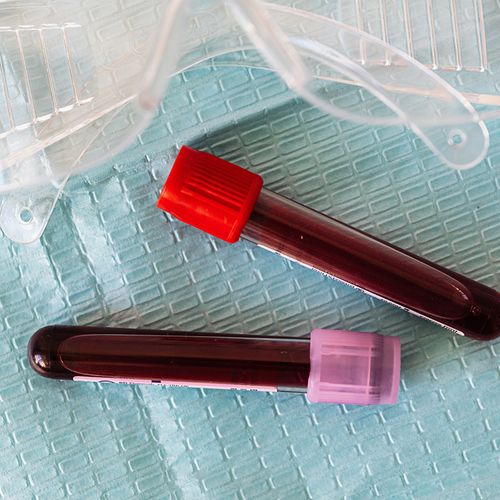Current practice calls for patients to fast at least eight hours before having their cholesterol levels checked, but Canadian researchers report that may be unnecessary.
"For routine screening, fasting for cholesterol is largely unnecessary," because it has only a slight effect on test results, said lead researcher Christopher Naugler, MD, assistant professor of clinical pathology at the University of Calgary, in Canada. "Eliminating fasting as a general requirement for cholesterol testing could greatly increase convenience for patients without significantly altering test results."
There are some patients, however, such as those with abnormally high triglycerides, where a repeat fasting cholesterol measurement may be necessary, Dr. Naugler said.
The report was published in the journal Archives of Internal Medicine.
Study Details
For the study, Dr. Naugler looked at laboratory data on cholesterol tests from more than 200,000 patients.
The researchers compared fasting time with resulting cholesterol levels. Overall, they found fasting time made little difference in the accuracy of the blood test. Levels of total and HDL (good) cholesterol varied less than 2% with different fasting times.
In addition, levels of LDL (bad) cholesterol varied less than 10% and levels of triglycerides, a marker linked with inflammation, varied less than 20%, the researchers noted.
"In our opinion, physicians and health care providers may consider doing non-fasting lipid tests based on the current evidence," said Samia Mora, MD, assistant professor of medicine at Brigham and Women's Hospital in Boston and coauthor of an accompanying journal commentary.
Either non-fasting or fasting blood tests may be used for cholesterol testing, Dr. Mora said.
"This is based on a growing body of evidence-including the present study, but also several other recent studies—that non-fasting lipids are generally not substantially affected by the fasting," she said.
Summer Cholesterol Alert
If your LDL "bad" cholesterol level is borderline high in the summer, you may want to be tested again in winter.
Here is why: In a two-year review of more than 227,000 adults, researchers found that LDL levels increased an average of 7 mg/dL during the winter months compared with summer. This led to an overall increase of 8% in the prevalence of high cholesterol levels.
Theory: The shorter days of winter result in less exposure to sunlight and lower concentrations of vitamin D-low levels of this vitamin may increase LDL levels.
Another expert noted that non-fasting test results may also be a more reliable predictor of heart trouble.
"While most guidelines recommend obtaining a cardiovascular lipid panel after at least eight hours of fasting, many studies suggest for most individuals a non-fasting lipid panel provides similar lipid values," said Gregg Fonarow, MD, associate chief of the cardiology division at the University of California, Los Angeles. "Some analyses have even suggested that non-fasting lipid levels are more accurate for predicting the risk of cardiovascular events compared with those obtained in the fasting state."
